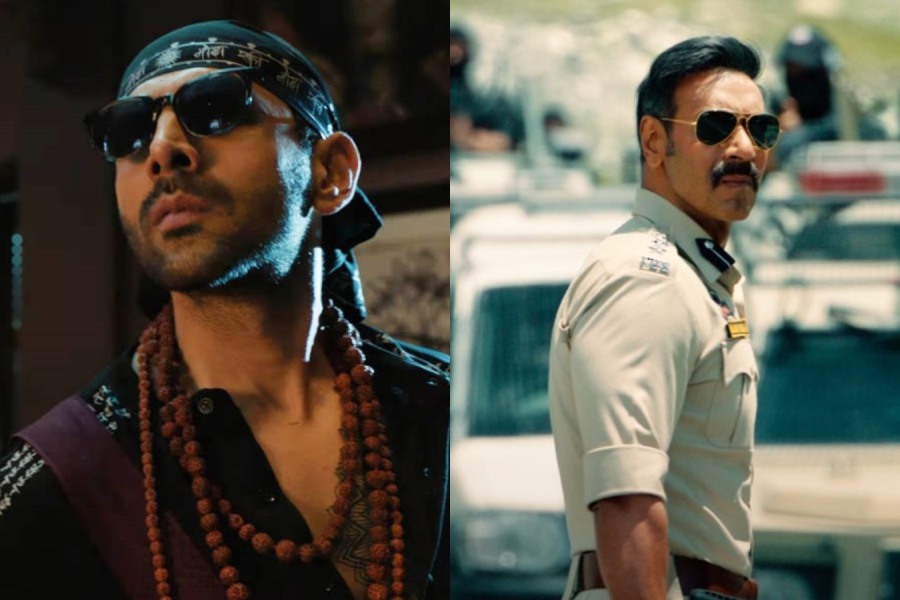Despite having two films cross Rs 250 crore, November could not become the fifth month of 2024 to hit the Rs 1,000 crore mark. With a gross collection of Rs 914 crore, November was a steady month that continued the momentum acquired since August without boosting it significantly, as per the India Box Office Report by Ormax Media.
Two Diwali releases did the bulk of the business in November. Bhool Bhulaiyaa 3, with an ensemble cast of Kartik Aaryan, Madhuri Dixit, Vidya Balan and Triptii Dimri, led the way for the month. Extending the franchise’s golden run at the box office, the latest iteration of the horror comedy spooked and laughed its way to Rs 305 crore. It was hotly pursued by Singham Again, whose cast, too numerous and celebrated to recount in detail, bagged Rs 290 crore. Between them, Bhool Bhulaiyaa 3 and Singham Again were responsible for a staggering 65 per cent of November’s collection.
In third place for the month was Kanguva, a Tamil fantasy starring Suriya, Disha Patani and Bobby Deol, which closed out November with Rs 83 crore in its kitty. A big gulf separated Kanguva and Sookshma Darshini, in fourth. A Malayalam black comedy, Sookshma Darshini accumulated Rs 44 crore, beating Vikrant Massey’s The Sabarmati Report, which took fifth place with Rs 39 crore.
Bhool Bhulaiyaa 3’s stellar run in November propelled it to joint-fourth on 2024’s list of highest-grossing films, tied with Suriya’s The Greatest of All Time. Singham Again is in sixth, clear of Amaran. Kalki 2898 AD (Rs 776 crore) remains on top, trailed by Stree 2 (Rs 698 crore).
November’s numbers mean that 2024’s cumulative collection stands at Rs 9,862 crore, which is four per cent lower as compared to the same period last year. However, Pushpa 2’s fantastic performance in early December means that 2024 remains in the hunt to knock 2023 off its perch as the most successful year in the history of the Indian box office.
In terms of language share for the calendar year, Hindi increased its share by four percentage points to move to 38 per cent, ahead of Telugu at 19 per cent and Tamil at 17 per cent.










